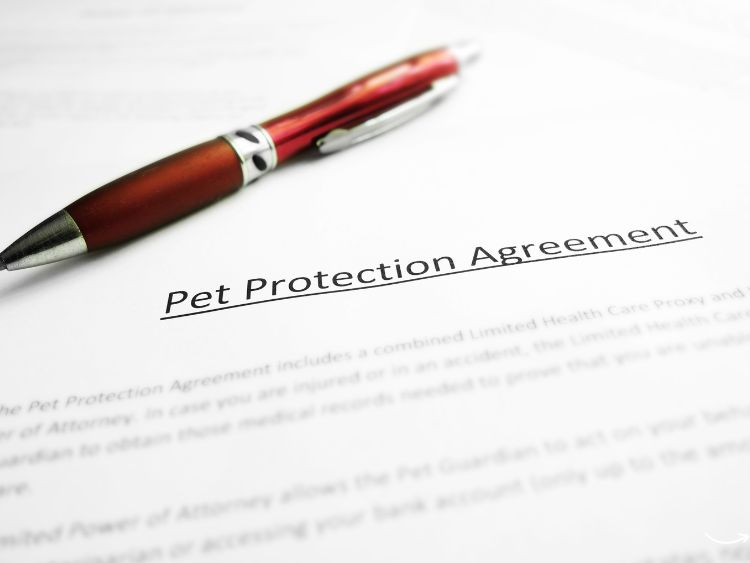When it comes to owning a pet in Texas, understanding the laws and regulations is essential. From registration and vaccination requirements to leash laws and animal cruelty statutes, Texas pet laws are designed to ensure the well-being of animals and the safety of the community. This guide provides an in-depth look at the key aspects of pet laws in Texas, helping pet owners navigate their responsibilities and rights.
Owning a pet is a joyful experience, but it comes with a set of responsibilities, especially in Texas, where pet laws are taken seriously. Whether you’re a first-time pet owner or have been caring for animals for years, staying informed about these laws is crucial. This article delves into the essential Texas pet laws, offering clarity and guidance for all pet enthusiasts.
Registration and Licensing
Why Register Your Pet?
In Texas, registering your pet is more than just a formality; it’s a legal requirement in many municipalities. Registration helps in identifying lost pets, controlling the pet population, and ensuring that animals are vaccinated against diseases like rabies.
How to Register Your Pet
- Visit Your Local Animal Control Office: Most cities and counties have specific departments where you can register your pet.
- Provide Necessary Documentation: This typically includes proof of vaccination and identification details.
- Pay the Registration Fee: Fees vary by location but are generally affordable.
- Receive Your Pet’s Tag: This tag should be worn by your pet at all times.
Vaccination Requirements
Mandatory Vaccinations
Texas law mandates that all dogs and cats must be vaccinated against rabies by the time they are four months old. This vaccination must be administered by a licensed veterinarian and renewed periodically as per the vaccine manufacturer’s guidelines.
Importance of Vaccinations
Vaccinations protect your pet from various diseases and contribute to public health safety. Unvaccinated pets pose a risk not only to themselves but also to other animals and humans.
Leash Laws and Animal Control
Leash Laws
Leash laws in Texas vary by city and county. Generally, pets must be on a leash when in public places. This prevents pets from running away, causing accidents, or posing a threat to other animals and people.
Off-Leash Areas
Some areas, like designated dog parks, allow pets to roam off-leash. However, even in these spaces, owners must maintain control of their pets and ensure they are behaving appropriately.
Animal Cruelty Laws
Definition of Animal Cruelty
Texas defines animal cruelty as any act that causes unnecessary harm, suffering, or death to an animal. This includes physical abuse, neglect, and abandonment.
Penalties for Animal Cruelty
Penalties for animal cruelty in Texas are severe. Depending on the offense, violators can face fines, imprisonment, and a permanent ban on owning animals.
Reporting Animal Cruelty
If you witness or suspect animal cruelty, it’s your duty to report it. Contact your local animal control or law enforcement agency immediately. Many areas also have anonymous tip lines.
Breeding and Selling Pets
Breeder Regulations
Breeding pets for commercial purposes is regulated in Texas. Breeders must obtain a license and adhere to specific standards of care, including adequate housing, nutrition, and veterinary care.
Selling Pets
When selling pets, breeders and sellers must provide a health certificate and vaccination records. It’s also illegal to sell pets in certain public places like flea markets and parking lots.
Traveling with Pets
Interstate Travel
Traveling with pets across state lines requires proof of current vaccinations and, in some cases, a health certificate from a veterinarian.
Air Travel
Airlines have their own set of regulations for traveling with pets. Ensure you check these requirements and prepare your pet accordingly to avoid any issues.
Dangerous Dog Laws
Definition of a Dangerous Dog
A dangerous dog in Texas is defined as one that has, without provocation, attacked and caused serious injury to a person or another animal.
Responsibilities of Owners
Owners of dangerous dogs must adhere to strict regulations, including securing the dog in a proper enclosure, obtaining liability insurance, and posting warning signs.
FAQs About Texas Pet Laws
Do all cities in Texas have the same pet laws?
No, pet laws can vary significantly between different cities and counties. Always check local ordinances.
What should I do if my pet is lost?
Contact local animal control and check nearby shelters. Ensure your pet is wearing a tag and is microchipped to increase the chances of being reunited.
Are there any restrictions on the types of pets I can own?
Certain cities have restrictions on exotic animals and specific dog breeds. Always check local laws before acquiring a new pet.
How often should I renew my pet’s registration?
Pet registration renewal periods vary by municipality, typically ranging from one to three years.
What are the consequences of not vaccinating my pet?
Failing to vaccinate your pet can result in fines and other legal penalties. It also puts your pet and the community at risk.
Summary
Navigating Texas pet laws can seem daunting, but staying informed ensures you’re providing the best care for your furry friends while complying with legal requirements. From registration and vaccinations to understanding leash laws and reporting animal cruelty, every aspect is crucial for responsible pet ownership in Texas.
Authoritative Links
- Texas Animal Health Commission: https://www.tahc.texas.gov
- Texas Department of State Health Services: https://www.dshs.texas.gov
- American Veterinary Medical Association: https://www.avma.org
- ASPCA: https://www.aspca.org
- Humane Society of the United States: https://www.humanesociety.org
By following Texas pet laws, you can ensure a safe and happy environment for both your pets and the community. Keep these guidelines handy, stay proactive, and enjoy the many rewards of being a responsible pet owner in the Lone Star State.

